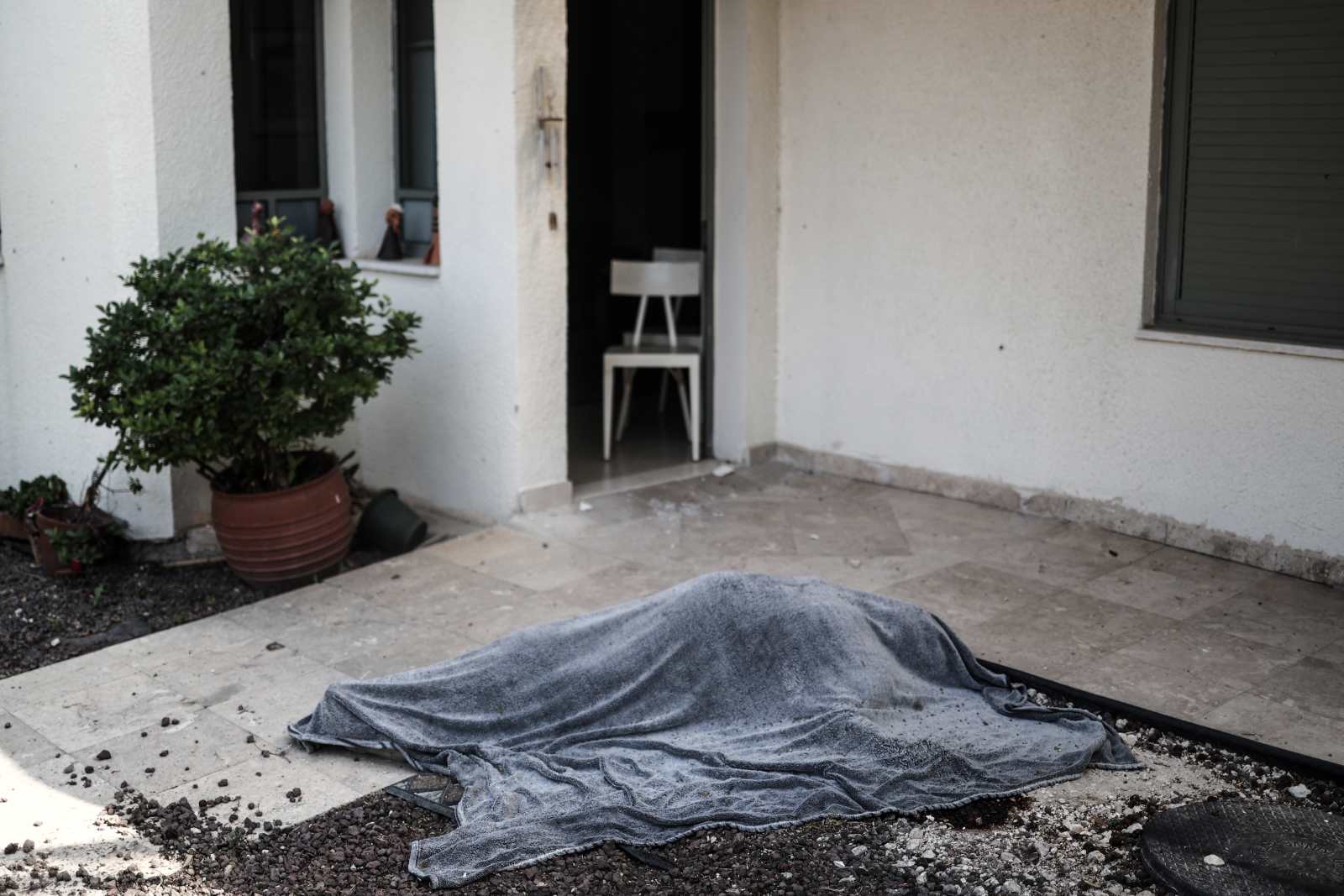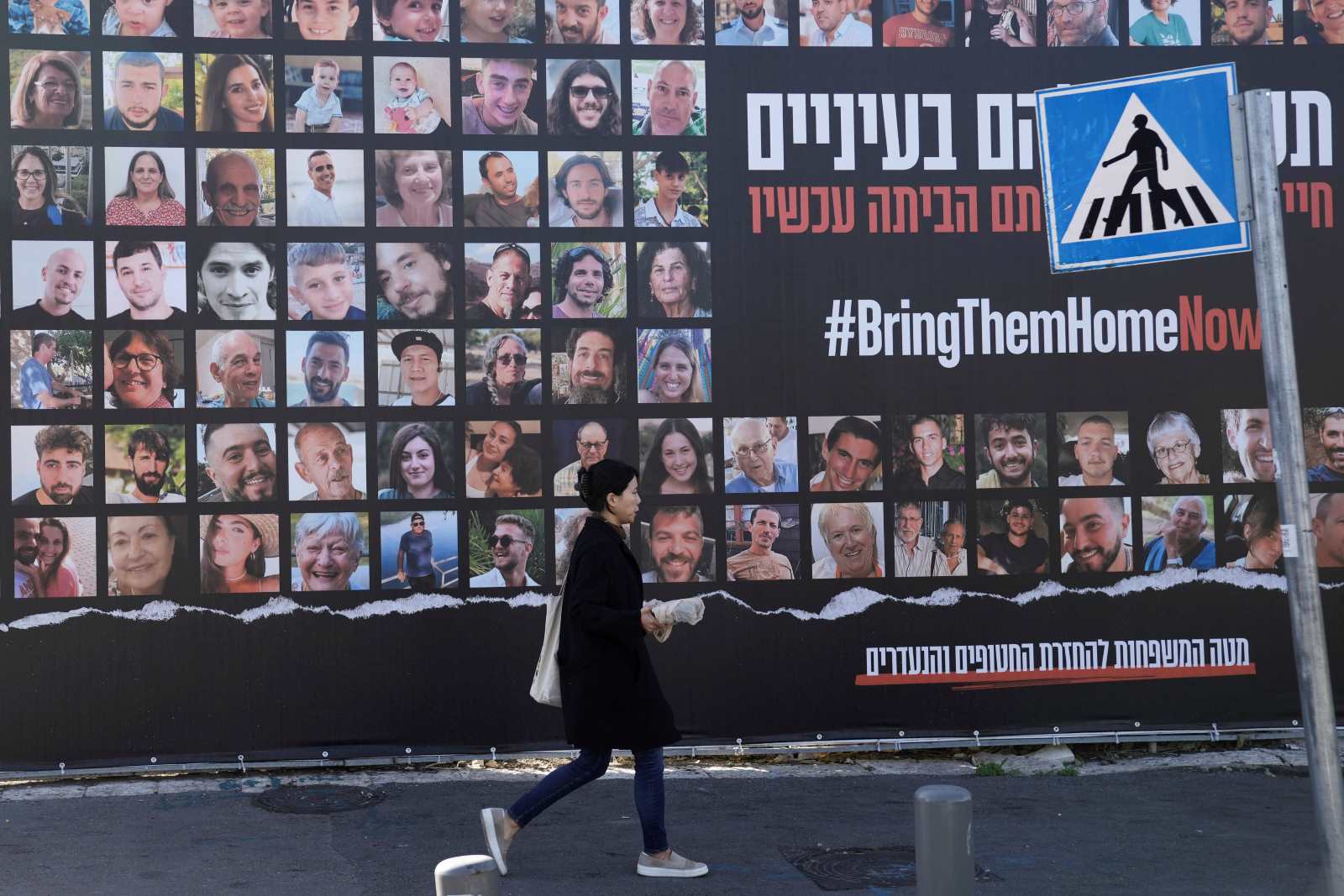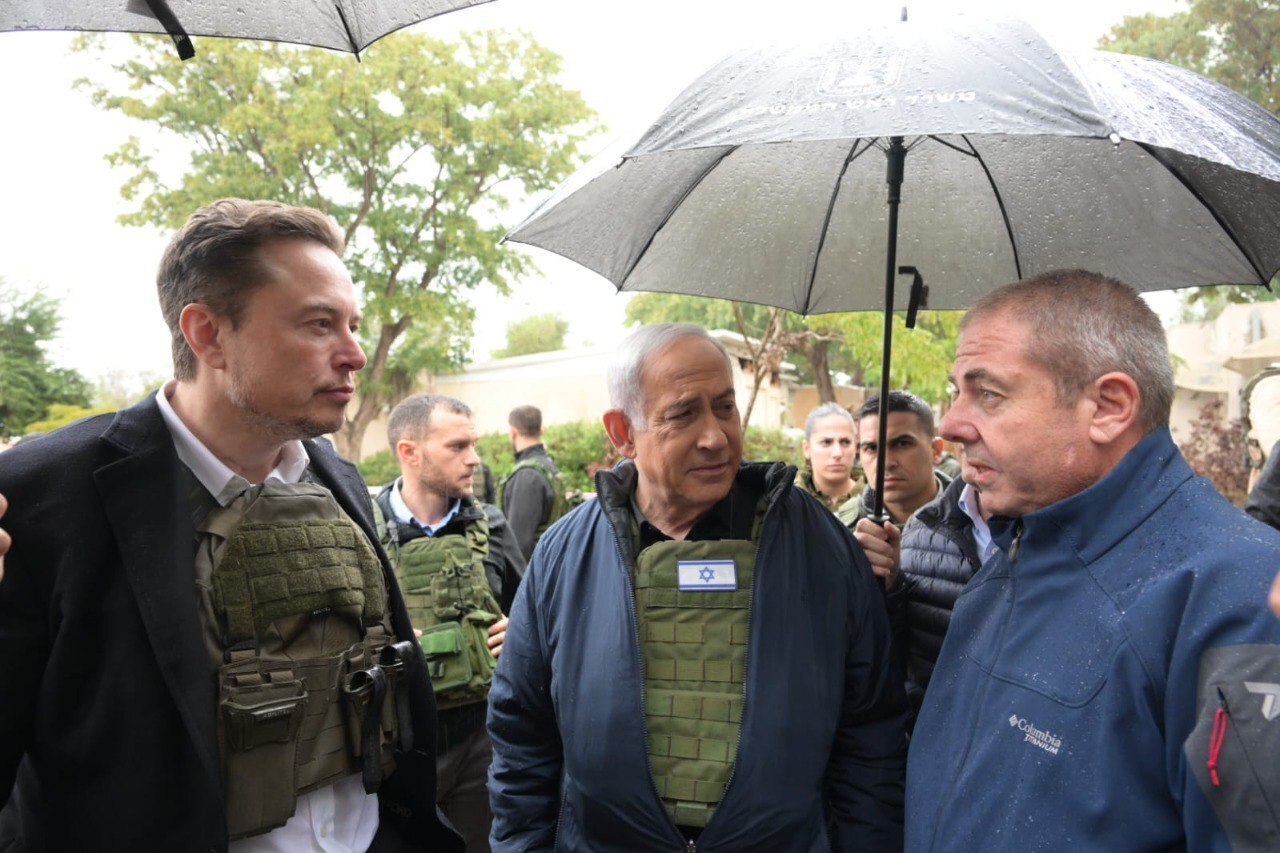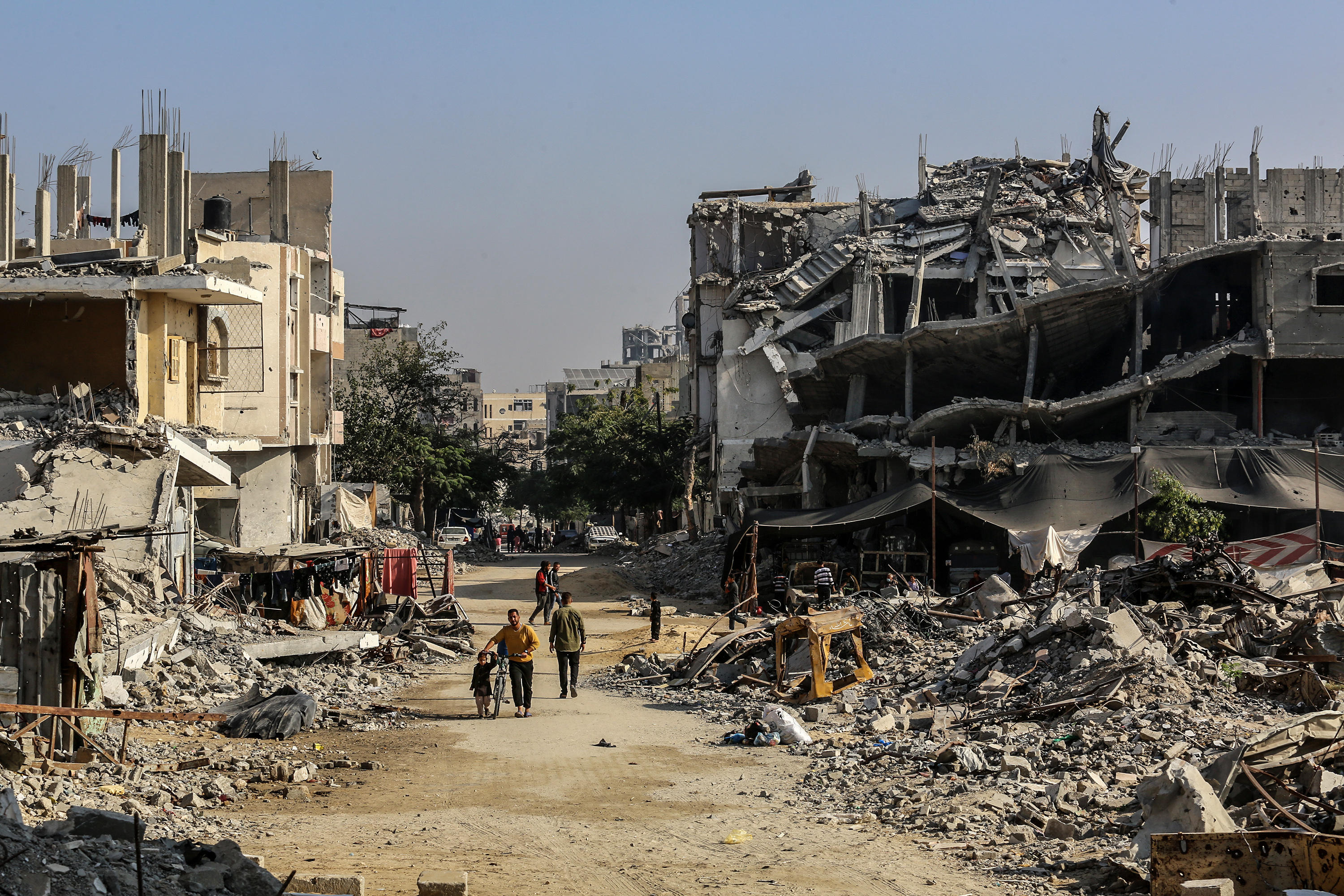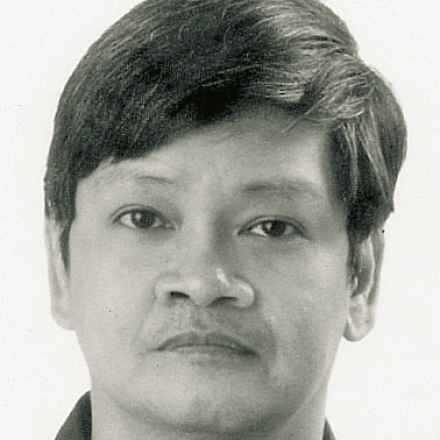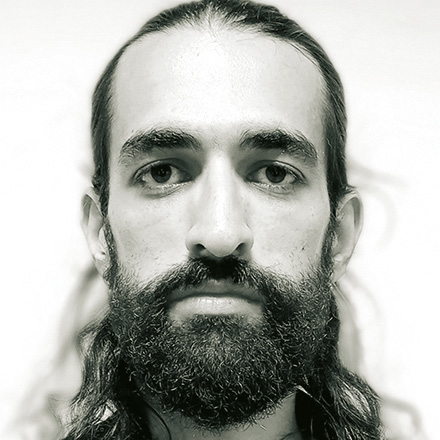Our view
Self-righteous aggressiveness versus universal values
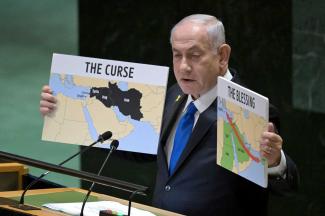
It includes principles of humanity and reciprocity, non-violence, truthfulness, the equal value of every soul and environmental stewardship. Atheist philosophers agree to these values too.
The global ethic is a basis for interfaith dialogue and cooperation. Coalitions of faith leaders indeed endorse the kind of global governance humankind needs to develop sustainably.
Unfortunately, religion has a dark side when used for identity politics. Awful examples are currently evident in Palestine/Israel, with dehumanising cruelty and innocent victimhood on both sides.
On 7 October 2023, Hamas launched atrocious terror attacks on Israel. The violence was as shocking as possible. Most likely, the leaders of the Islamist militia wanted to trigger a regional conflagration. Knowing from experience that Israel’s response would be brutal, they hoped to pull in Iran and its allies. The extremists thought Israel would not survive that kind of war. What Hamas wants is to liberate holy lands from “infidel rule”. The leaders do not care much about Palestinian lives, claiming cynically that martyrs go straight to heaven.
Israeli society is shaped by destructive identity politics too. In the occupied West Bank, religious Zionists have been building illegal settlements with government support for years, claiming that God promised them Palestinians’ ancestral land. The stringent segregation Israel has imposed on the West Bank reminds not only South Africans of Apartheid. Annexation of the West Bank, by the way, is a goal spelled out in the coalition agreement of the right-wing government. Some Israeli ministers are publicly making plans for new Israeli settlements in Gaza.
A recent Human Rights Watch Report with the title “Hopeless, starving and besieged” provides ample evidence of intentional and violent displacement with return made impossible. That could amount to a crime against humanity.
Seen in this light, what is happening in Gaza is not so much a battle between good and evil, but a clash of fundamentalisms. Let’s not forget that Israel’s government too demands full control from “the river to the sea”, a phrase that western media consider genocidal when used by Palestinians.
Those who do not share the extremists’ world view must bear the brunt on both sides. The full truth is that identity politics is deeply divisive within any community affected. The western public knows a lot about Israeli trauma, but it has not paid much attention to deep rifts in Israeli society. It cares little about Palestinians’ mass suffering and assumes they all support the Islamists, even though Hamas has a bloody track record of killing Palestinians who oppose it.
Offending allies that Israel has and needs
When Israel’s Prime Minister Benjamin Netanyahu addressed the UN General Assembly in September, he once again used maps that left no space for Palestine. The West Bank and Gaza were not marked at all, with the two occupied territories being displayed as Israeli land.
It was an amazing act of chutzpah. In a time of profound crisis, Netanyahu was sticking up the finger to western governments, but also to the Arab allies he needs. All of them want the two-state solution that his government rejects. At the same time, Netanyahu accused the UN and anyone who does not agree with him of antisemitism. “We are winning,” he added.
Netanyahu’s perception of antisemitism has gaps, however. He does not object to anti-Jewish slurs when expressed by right-wingers from Europe and North America. Prominent examples include Hungarian Prime Minister Viktor Orbán or billionaire Elon Musk. Netanyahu manipulatively uses the notion of antisemitism to legitimise anything he does and discredit anyone who finds fault with him. When the International Criminal Court issued an arrest warrant in November, accusing him of the war crime of starvation and others, he once again interpreted it as an expression of antisemitism. By the way, the court did not deny Israel's right to self-defence at all, but its job is to investigate war crimes and crimes against humanity.
This constant weaponisation makes it difficult to even say that several things can be true at once. Yes, antisemitism is an issue, but so is Islamophobia. Yes, some attacks on Palestinians serve Israel’s self-defence, but too many do not. Action that suits religious Zionism, but is incompatible with international law, obviously fuels anti-Zionist and anti-Jewish feelings. New York Times columnist Thomas Friedman, who is Jewish, warns that Israel’s war is turning it into a pariah state.
Israel’s staunchest supporters in the USA, by the way, are not Jews, but right-wing Evangelicals who are awaiting Armageddon, which, they believe, will start with Middle East war. Their political hero is President-elect Donald Trump, who is not known for a God-fearing lifestyle. European right-wing extremists, on the other hand, tend to hate Muslims even more than they hate Jews. They appreciate far-away Israel fighting Muslims.
Political leaders who use religion for identity politics are never true to the global ethic that is at the core of every faith. It does not matter who is doing it. Whether it is the president of the USA or Russia, the prime minister of Israel, India or Italy, the crown prince of Saudi Arabia or the supreme leader of Iran – we deserve better. Only adherence to the global ethic can help us live sustainably in peace on this small planet.
Hans Dembowski is the editor-in-chief of D+C/E+Z.
euz.editor@dandc.eu


